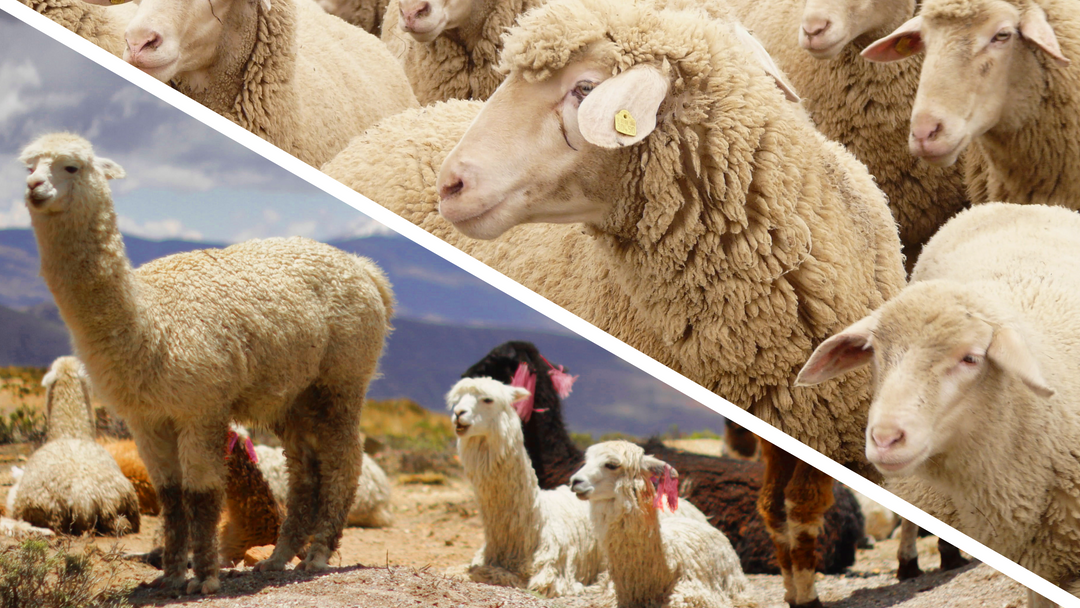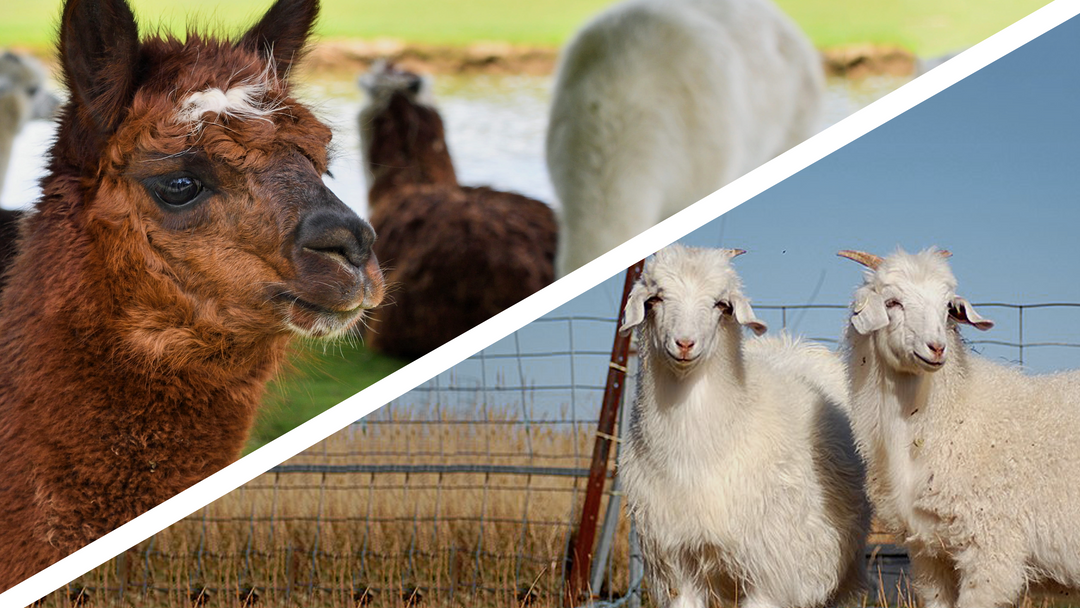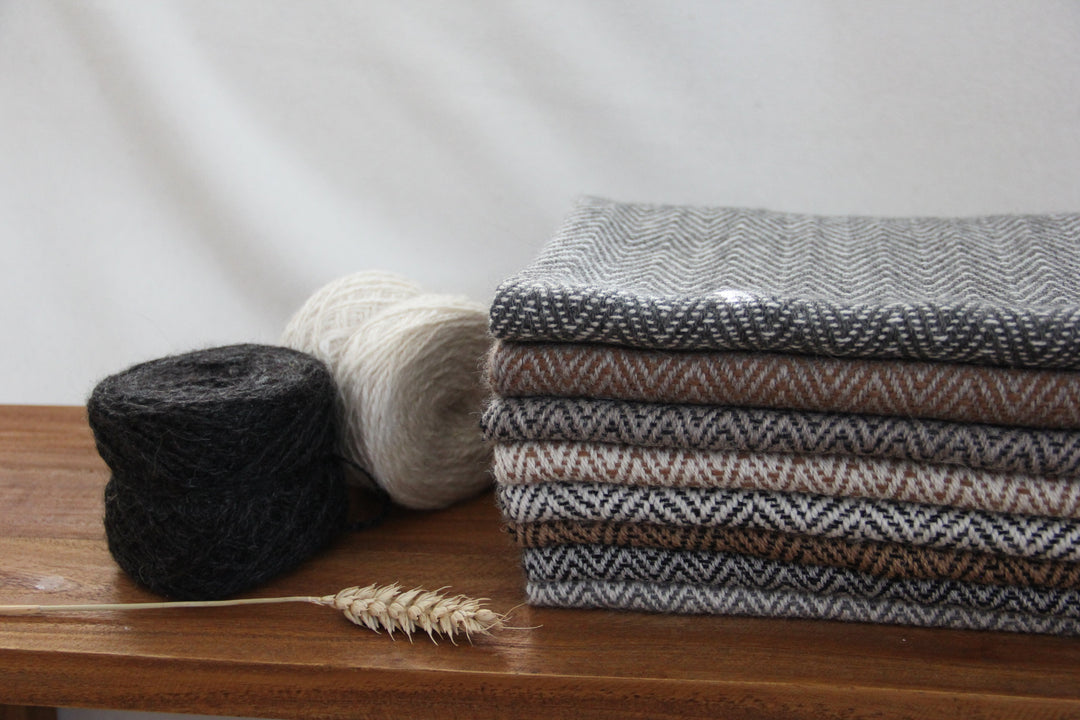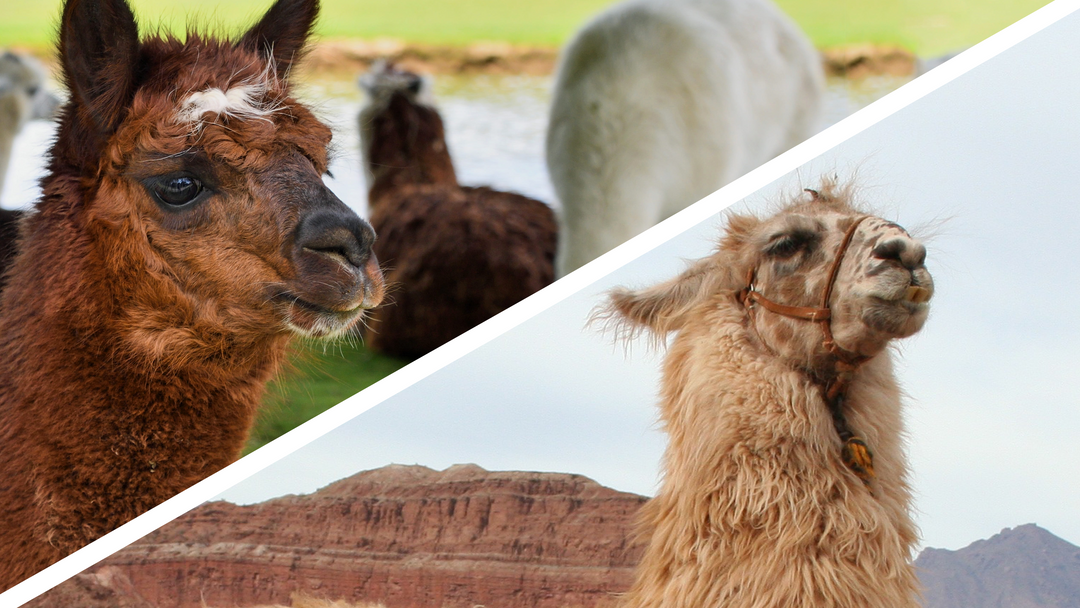In the world of high-quality winter clothing, choosing the right materials plays a crucial role. Especially for discerning and style-conscious people who value quality, elegance and functionality, the choice between alpaca wool and angora wool is more than a matter of taste - it is a decision that significantly influences warmth, comfort and style. In this article, we explore the unique properties of both types of wool and highlight which one is best suited to your winter wardrobe.
Table of contents
Alpaca wool
Origin and properties
Alpaca wool, a treasure of the Andes, has been known for centuries for its exceptional properties. Obtained from the alpacas, majestic animals native to the high Andes of South America, this wool represents a long tradition and deeply rooted culture.
To find out more about the unique properties of alpaca wool, visit our blog: The properties of alpaca wool.
Advantages for winter clothing
Why do style-conscious connoisseurs opt for alpaca wool when it comes to winter clothing? The answer lies in its remarkable warmth performance and luxurious feel. Alpaca wool not only offers excellent insulation properties, but is also surprisingly light and soft, making it a prime choice for sophisticated winter wardrobes.
Discover how alpaca wool is integrated into high-quality winter fashion: Integrating alpaca wool into winter fashion.
Angora wool
Origin and properties
Angora wool, obtained from the soft fur of Angora rabbits, is another exquisite choice for high-quality winter clothing. It is known for its fineness and unrivalled softness. This wool has a light, fluffy character that sets it apart from other natural fibres.
Find out more about the origin and properties of angora wool in our detailed article: All About Angora Wool.
Applications in winter clothing
Angora wool is a popular choice for luxury women's winter clothing because of its softness and warmth. It adds a touch of elegance and comfort to any garment without sacrificing functionality.
Discover exclusive collections that use angora wool: Exclusive angora wool collections.
Comparison: alpaca wool vs. angora wool
Warmth performance in focus
When it comes to pure thermal performance, alpaca wool outperforms angora wool. This is due to a few key factors:
-
Fibre structure: Alpaca wool has a unique hollow fibre structure that allows more air to be trapped. Air is an excellent insulator and contributes significantly to heat retention. This property makes alpaca wool one of the warmest natural materials available.
-
Wool density: Alpaca fibres are generally denser than angora fibres. This density also contributes to thermal insulation by preventing body heat from escaping and cold air from penetrating.
-
Moisture resistance: Alpaca wool is naturally water-repellent and can effectively wick moisture away from the skin. This helps to retain warmth even in damp conditions.
Angora wool, although it also has good thermal insulation properties, tends to be less heat-intensive than alpaca wool due to its lighter and fluffier structure. Its strength lies in its unrivalled softness and lightness, which makes it ideal for people looking for warmth without extra weight.
Practical aspects for winter clothingIn addition to warmth, other practical aspects such as comfort, ease of care and durability are also important. Alpaca wool is not only thermally insulating, but also hard-wearing and easy to care for. It is less prone to pilling and retains its shape and texture even after frequent wear.
Angora wool, on the other hand, is extremely soft and luxurious, but can be more delicate to care for. It requires more careful handling and care to maintain its beauty and texture.
Discover more about the benefits of alpaca wool over other natural products: alpaca wool vs. other natural products.
Decision support for consumers
The right type of wool for different needs
The choice between alpaca wool and angora wool should be based on your individual needs. If you are looking for maximum warmth and durability and prefer an easy-care material, then alpaca wool could be the right choice.
For lovers of exceptional softness and lightness who are willing to invest a little more time in caring for their clothes, angora wool might be the better option.
Recommendations for buying
It is important that you pay attention to quality and origin when buying products made from alpaca or angora wool. High-quality products not only guarantee longevity, but also ensure that the animals from which the wool comes are kept under ethical conditions.
For high-quality alpaca wool products, visit: Handmade alpaca products and Our alpaca shop.
Conclusion: Summary and purchase recommendations
In this article, we have explored the unique properties and benefits of alpaca wool and angora wool. Both types of wool offer their own unique benefits, with alpaca wool being characterised by its exceptional warmth and durability, while angora wool impresses with its unparalleled softness and lightness.
For winter clothing that combines style, comfort and functionality, it's crucial to make an informed choice. Whether you choose alpaca wool or angora wool depends on your individual needs, lifestyle and preferences.
Resources and shopping addresses
For more information and to discover high-quality alpaca wool and angora wool products, we offer a range of resources:
- To find out more about alpaca wool and its uses, visit our blog About alpaca clothing.
- Discover our carefully selected alpaca wool products in our alpaca shop.
- For insights into the environmental benefits of alpaca products, read our article Environmental benefits of alpaca products.
Final words
We hope that this article has given you valuable insights into the world of high-quality winter wool. Both alpaca wool and angora wool offer unique benefits that make them excellent options for your winter wardrobe. Regardless of your choice, be it the robust warmth of alpaca wool or the delicate softness of angora wool, you can look forward to enriching your winter experience.
We invite you to share your thoughts, questions or experiences of using these exquisite natural fibres in the comments. Your opinions and insights are important to us, and we look forward to hearing from you.
Discover the world of high-quality natural fibres and enrich your winter wardrobe with pieces that are not only stylish and warm, but also tell a story.
Frequently asked questions (FAQs) about alpaca wool and angora wool
-
What is the main difference between alpaca wool and angora wool in terms of thermal performance?
- Alpaca wool offers higher thermal performance due to its unique hollow fibre structure, which traps more air and therefore insulates better. Angora wool is also warm, but less heat-intensive due to its fluffier and lighter nature.
-
What type of winter clothing is alpaca wool best suited for?
- Alpaca wool is ideal for extremely cold conditions and for people who prefer robust, durable and easy-care winter clothing. It is ideal for coats, jackets, jumpers and other outerwear that needs to offer maximum protection from the cold.
-
Is angora wool suitable for everyday use?
- Yes, angora wool is suitable for everyday use, especially if you are looking for clothing with exceptional softness and lightweight warmth. It is ideal for accessories such as scarves and hats or lightweight jumpers.
-
How do I care for alpaca wool and angora wool garments properly?
- Alpaca wool should be washed cold and dried flat to retain its shape. It is generally easy to care for. Angora wool requires gentler treatment; hand washing is recommended and garments should also be dried flat.
-
Where can I buy high-quality alpaca wool and angora wool?
- High-quality alpaca wool and angora wool can be purchased in specialised shops and online shops. Pay attention to the origin and quality. Visit our alpaca shop and discover our selection of alpaca products.
-
Are alpaca wool and angora wool environmentally friendly?
- Yes, both types of wool are environmentally friendly. Alpacas and angora rabbits have a low ecological footprint and their wool is a sustainable, natural material. You can find out more about the environmental benefits of alpaca products in our article Environmental benefits of alpaca products.
-
Can I wash alpaca wool and angora wool in the same machine?
- It is recommended to wash alpaca wool and angora wool by hand to preserve the quality of the fibres. If machine washing is necessary, please use the delicate cycle and cold water.
-
How sustainable is the production of alpaca and angora wool?
- The production of alpaca and angora wool is considered sustainable as both animals require few resources and the wool is biodegradable. In addition, buying ethically sourced wool helps to protect and preserve these traditional industries.
-
Are there allergic reactions to alpaca wool or angora wool?
- Alpaca wool is generally considered hypoallergenic. Angora wool can cause allergic reactions in some people, especially if they are very sensitive to animal hair. It is advisable to test this individually.
-
How can I ensure that my alpaca or angora wool has been ethically sourced?
- Inform yourself about the origin of the wool and buy from retailers who provide transparent information about their supply chain and the conditions in which the animals are kept. Read more about ethical alpaca wool in our blog Handmade alpaca products.











